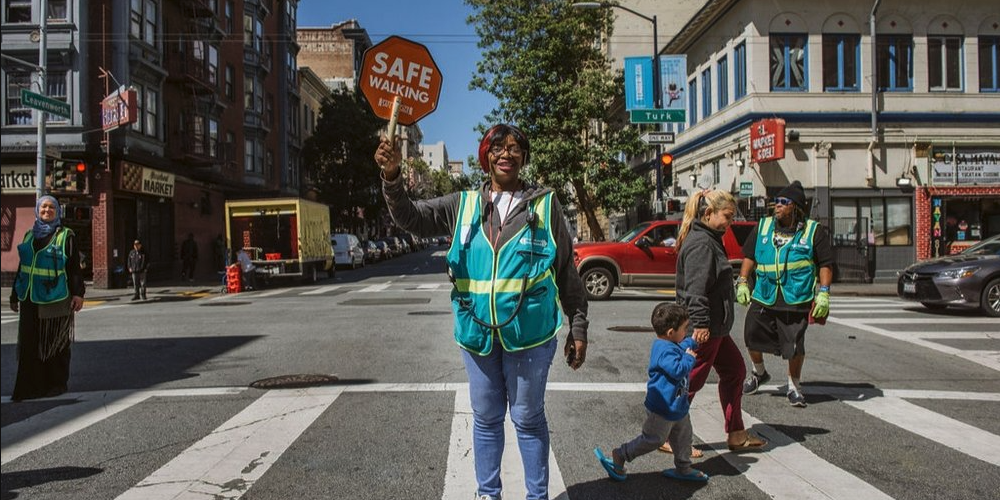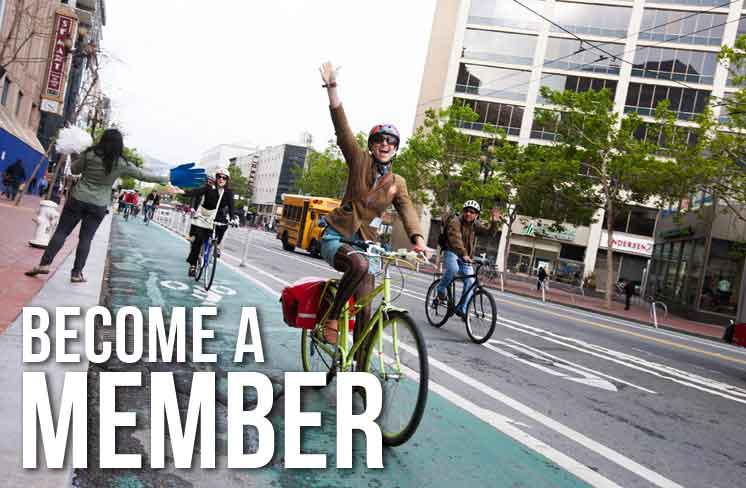In the past several months, our nation has been engaging in critical conversations on how systems deeply rooted in racism have oppressed Black, Indigenous and people of color since the inception of our country. San Francisco, like many cities around the country, has been discussing the role of police and how they have harmed Black and brown communities. Discussing what this looks like in our work is crucial — police play a huge role in enforcing traffic laws. As talks about defunding and abolishing the SF Police Department (SFPD) continue, we need to talk about how to shift towards alternatives to policing in traffic enforcement.
For decades, San Francisco has failed to reduce traffic violence and make streets safer throughout the city, especially in the Tenderloin. Every street in the Tenderloin falls under Vision Zero’s High Injury Network. Relying on SFPD to enforce traffic laws has shown to be ineffective and can be harmful to communities of color.
Since September, we’ve been working closely with Tenderloin Community Benefit District (TLCBD) on a campaign to pilot community alternatives to policing in traffic enforcement in the Tenderloin. Over the last few months, we’ve researched community based models nationally and internationally, and we now have potential alternatives to implement.
Throughout December, we’ll be conducting a survey and two focus groups in the Tenderloin to hear from residents what they’re traffic enforcement interactions with SFPD have been like and which community alternatives they’d find most useful based on their lived experiences. Results of the survey will be anonymous and will be used to better inform what community alternatives Tenderloin residents want to see piloted in the future. The survey is live and will be prioritized for people who live and work in the Tenderloin.
In order to make this pilot come to fruition we need your help. If you are someone who lives or works in the Tenderloin, take our anonymous survey today, tell us about your traffic enforcement experiences with SFPD, and which policing alternatives you think would work best in your neighborhood.


